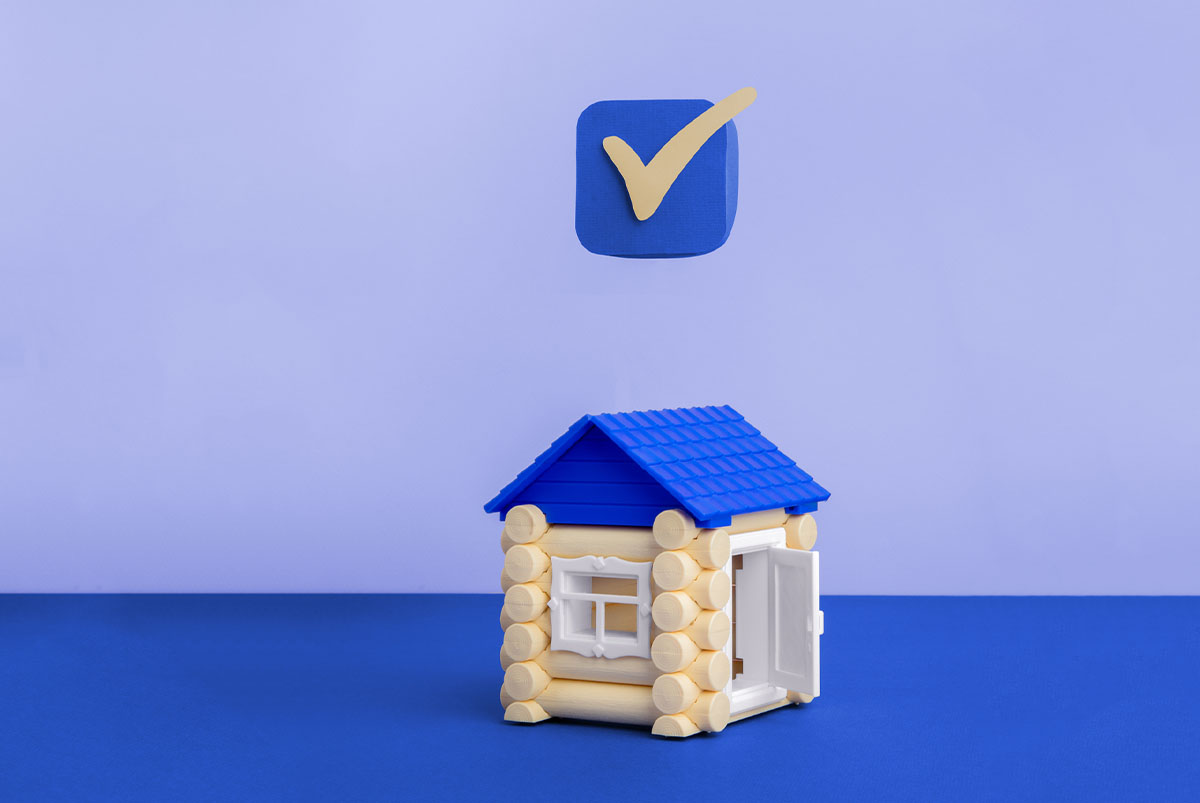Ready To Buy a Home?
Get Approved to Buy a Home
Rocket Mortgage® lets you get to house hunting sooner.
You want to sell your house, but you are facing one potentially vexing problem: the mountain of repairs you never got around to in your home. Fortunately for you, some buyers are more than willing to part with their money to buy your home as-is.
An as-is clause makes a buyer responsible for all home repairs, which is a big help for some sellers. But selling your home as-is can also come with drawbacks.
Before you press “go” on selling your home as-is, hit the “pause” button and weigh the pros and cons of an as-is contract. Let’s explore when it makes sense to sell your home as-is, the benefits and drawbacks and some alternatives.
What Does Selling a House As-Is Mean?
Selling a house as-is means a seller is listing their home for sale in its current condition, and the buyer will be responsible for any repairs.
Some homeowners decide to sell their homes as-is to avoid disclosing the property’s defects. But an as-is provision doesn’t relieve you of your obligation to disclose known issues in a home.
Even if you’re selling the home as-is, if you know the roof leaks or your foundation has cracks, you must disclose these issues to potential home buyers.
Many states require home sellers to complete a detailed Seller Disclosure, which provides insights to buyers about a property’s condition. By the way, disclosing property defects doesn’t mean you’re on the hook to fix them. But state and federal laws will dictate what sellers must disclose to prospective buyers.
Pros of Selling a House As-Is
There are a few reasons you might want to sell your house as-is. Let’s discuss the benefits.
Faster sale
If you’re in a hurry to sell your home, an as-is sale may be your best option to get to the closing table faster. The buyer who agrees to purchase your property as-is knows it’s not in “perfect condition” and will probably want to close ASAP to start making repairs.
No repairs necessary
When you sell your home in its existing condition, you’ll save thousands of dollars you likely would have spent on repairs. And because you’re not waiting for repairs to be completed, you can list your home for sale sooner.
Greater chance of receiving an all-cash offer
An as-is offer usually closes faster than a traditional home sale because buyers often pay with cash. Homeowners who sell as-is usually know their home has some issues. And interested buyers know those issues might become a problem for a lender. Securing an offer from a cash buyer means skipping the mortgage approval process and eliminating a time-consuming step in the home selling process.
Fewer contingencies
An as-is sale makes it clear from the start that the seller won’t be responsible for any repair costs. Most purchase agreements have contingencies, but an as-is contract should reduce the number of contingencies and help pave a surer path to closing.
Cons of Selling a House As-Is
Selling your home as-is can be beneficial in the right situation, but it also comes with some risks and downsides.
Fewer potential buyers
Many buyers want a move-in ready home. If scheduling or savings is an issue, they may not have the time or resources to fix up a house. Your home might have excellent potential, but when you sell your home as-is, the pool of buyers shrinks.
Lower profits
A buyer repairing defects in your home will likely expect the sale price to reflect their added costs. Selling your home as-is can be quick and painless, but you may be forced to settle for less than the property’s fair market value.
Buyers can walk away
In most states, a buyer can walk away from a sale if they see or discover something they don’t like from a home inspection. If the purchase agreement includes an inspection contingency, the buyer can walk away from the deal after notifying the seller in writing before the inspection period ends.
A buyer purchasing a property as-is can schedule an inspection and back out of the sale before closing.
Tips for Selling Your House As-Is
If you decide the pros of selling as-is outweigh the cons, it’s time to take the next step and get some offers. Consider our three key tips to help you sell your home as-is:
Sell to a local home buying company
Local home buying companies are real estate investors or house flippers that buy fixer-uppers to renovate and resell for a profit or rent out. A local home buying company will usually pay cash and fast-track closing – but beware – they’ll likely expect a steep discount and may make a lowball offer.
Use an iBuyer
If you want to sell your as-is home online (think: no in-person showings or open houses), an iBuyer can make a quick cash offer. All you need to do is share some basic information about the home.
Using an iBuyer allows you to sell your home quickly without needing to stage it. Just keep in mind that, in most cases, iBuyers charge sellers a service fee that’s around 5% of the sale price.
Hire a real estate agent who uses the MLS
The multiple listing service (MLS) is the database real estate professionals use to share information about properties for sale. Real estate agents representing buyers can also access the MLS to share property information with their clients.
A real estate agent who works with the MLS can help market your property to a bigger pool of prospective buyers and give you insights into the local market and comparable home sales.
Alternatives to As-Is
If you don’t want to sell your home as-is, you can always make repairs or renovate your home. Yes, rehabbing your home will cost money upfront, but the investment in your home might fetch a higher price when you sell. The renovations that typically increase your home’s value include replacing your HVAC system, exterior siding and windows and updating kitchens and bathrooms.
If you can’t pay for repairs right now, some real estate brokers will cover your repairs in exchange for a percentage of your proceeds when you sell (aka fix now, pay later).
Another alternative would be to offer the buyer a credit at closing (aka seller concessions or seller assists) to cover the cost of repairs and renovations.
Is Selling Your Home As-Is Right for You?
Choosing to sell your home as-is comes down to the property’s condition, your goals and personal preference. If you know your home needs major repairs and you want a fast and convenient sale, it may be better to sell as-is. But if time is on your side and you can afford to make repairs, you might sell your home for more if you invest in rehabbing it.
Looking to make a change?
Whether you want to buy a house, refinance or take cash out, you’re not alone. The experts are just a click away.
The Short Version
- Selling a house as-is means a seller is listing their home for sale in its existing condition, and the buyer will be responsible for any repairs
- If you know your home needs major repairs and you want a fast and convenient sale, it may be better to sell as-is
- A buyer purchasing a property as-is can schedule an inspection and back out of the sale before closing




